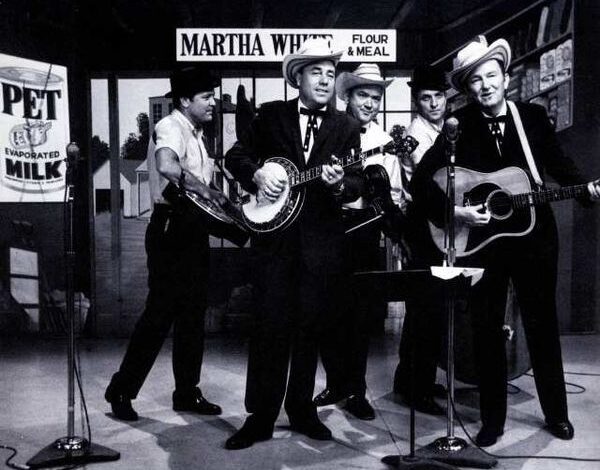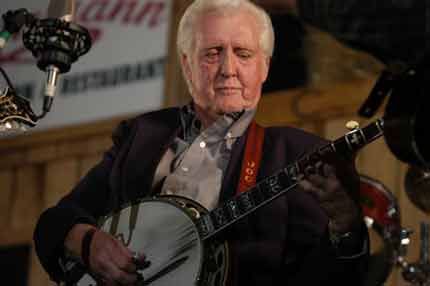Title: The Unique Voice of Ralph Stanley: A Legacy in Bluegrass

In the annals of American bluegrass track, few voices are as iconic and immediately recognizable as that of Ralph Stanley. A pioneer of the genre, Stanley’s voice became more than only a way of delivering lyrics; it was an tool in itself, one that could deliver the inner most of sorrows, the heights of non secular ecstasy, and the uncooked, unfiltered feelings of Appalachian life. His voice, with its distinct excessive, lonesome sound, no longer best described his career however also left an indelible mark on the whole bluegrass style. This article delves into the unique features of Ralph Stanley’s voice, its effect on bluegrass music, and the legacy it leaves behind.
The Early Years: A Voice Born of Tradition
Ralph Stanley changed into born on February 25, 1927, in Dickenson County, Virginia, a location steeped in the musical traditions of the Appalachian Mountains. Growing up in a musical own family, Stanley changed into exposed to the sounds of the place from an early age. His mom, a banjo participant and singer, become a extensive impact on his musical development. It become via her that Ralph become delivered to the traditional ballads and hymns that could later form his musical fashion.
Stanley’s voice turned into a fabricated from his surroundings, a reflection of the rugged, isolated Appalachian panorama. The excessive, nasal first-rate of his making a song become a hallmark of the mountain music tradition, a style designed to hold over lengthy distances and resonate inside the hollows and valleys of the Appalachians. Unlike the smoother, more polished voices determined in other genres, Stanley’s voice became uncooked and unadorned, characterised by its emotional directness and its potential to carry the stark realities of mountain life.
The Stanley Brothers: A Harmonious Blend
In 1946, Ralph Stanley teamed up along with his older brother, Carter, to shape The Stanley Brothers. Together, they became one of the most influential duos in bluegrass records. Carter’s clean lead vocals complemented Ralph’s tenor harmonies, developing a sound that became both effective and deeply moving. Ralph’s voice, with its piercing clarity, turned into the perfect counterpart to Carter’s greater mellow tones, and the 2 brothers speedy gained a reputation for their tight, seamless harmonies.
The Stanley Brothers’ tune turned into deeply rooted inside the conventional sounds of the mountains, however additionally they introduced a brand new electricity and creativity to the genre. Their recordings inside the past due Forties and Nineteen Fifties helped to outline the rising bluegrass style, with Ralph’s banjo playing and high tenor voice turning into principal factors of their sound. Songs like “Rank Stranger,” “Man of Constant Sorrow,” and “Angel Band” showcased the emotional intensity and spiritual resonance of Ralph’s singing, earning the brothers a devoted following.
A Solo Career: The Evolution of Ralph Stanley’s Voice
Following Carter’s premature death in 1966, Ralph Stanley embarked on a solo profession that would further cement his popularity as a bluegrass legend. While the lack of his brother become a devastating blow, it additionally marked a turning factor in Ralph’s profession. No longer restrained to the harmonies that had described The Stanley Brothers’ sound, Ralph was loose to explore the total variety of his vocal capabilities.
In his solo paintings, Stanley’s voice took on a good greater significance. Without Carter’s lead vocals, Ralph’s excessive, mournful tenor have become the centerpiece of his track. His making a song turned into regularly unaccompanied, or observed simplest by sparse instrumentation, permitting the full energy and emotion of his voice to come back thru. Songs like “O Death,” which Stanley recorded in 1976 and later gained full-size reputation through its inclusion in the soundtrack of the film O Brother, Where Art Thou?, are prime examples of the haunting satisfactory of his voice.
Stanley’s solo career also noticed him delve deeper into the traditional gospel music that had continually been a part of his repertoire. His recordings of hymns and spirituals, frequently done a cappella or with minimal accompaniment, showcased his potential to bring the deep religious convictions of the Appalachian humans. His voice, with its plaintive, almost otherworldly satisfactory, become ideally suited to these songs of religion and redemption.
The “High Lonesome Sound”: A Distinctive Vocal Style

One of the most putting elements of Ralph Stanley’s voice became its adherence to what is regularly referred to as the “high lonesome sound.” This vocal style, characterized by way of a high pitch, a nasal timbre, and a feel of longing or despair, is a defining function of conventional bluegrass tune. Stanley’s voice became a indispensable instance of this style, embodying the spirit of the Appalachian mountains in every notice.
The excessive lonesome sound is more than only a vocal method; it is a way of expressing the deep emotions and hardships of lifestyles in the mountains. Stanley’s voice, with its piercing clarity and emotional depth, was capable of deliver the loneliness, sorrow, and resilience of the Appalachian people in a manner that few different singers ought to. Whether he was singing approximately lost love, demise, or the hope of salvation, Stanley’s voice had a manner of reducing to the heart of the listener, evoking a profound emotional response.
Influence and Legacy: Ralph Stanley’s Enduring Impact
Ralph Stanley’s voice has had an enduring impact on the arena of bluegrass music and past. His affect can be heard inside the making a song sorts of endless bluegrass and united states of america artists who have observed in his footsteps. Artists like Ricky Skaggs, Alison Krauss, and Emmylou Harris have all cited Stanley as a chief affect, and his vocal style continues to inspire new generations of musicians.
Stanley’s contribution to bluegrass song became diagnosed in the course of his lifetime with numerous awards and honors. In 2000, he obtained the National Medal of Arts, and in 2002, he become awarded a Grammy for his performance of “O Death” on the O Brother, Where Art Thou? soundtrack. These accolades are a testomony to the long-lasting strength and importance of his voice.
Beyond the accolades, however, Stanley’s true legacy lies within the emotional connection he cast along with his audience. His voice, with its raw, unfiltered emotion, spoke to the shared reports of the Appalachian humans and resonated with listeners a long way beyond the mountains. In a genre frequently characterized via its adherence to culture, Stanley’s voice turned into each a bridge to the beyond and a beacon for the destiny, making sure that the spirit of bluegrass track could live on for generations to come back.
Conclusion: The Eternal Voice of Ralph Stanley
Ralph Stanley’s voice changed into more than just a vocal instrument; it was a mirrored image of the way of life and records of the Appalachian human beings. Through his music, Stanley gave voice to the thrill, sorrows, and spiritual longing of a vicinity and its people. His excessive, lonesome sound, with its haunting splendor and emotional depth, has left an indelible mark on the world of bluegrass music and keeps to encourage and move listeners to at the present time. As lengthy as there are folks that locate solace and electricity within the track of the mountains, the voice of Ralph Stanley will by no means be forgotten.



